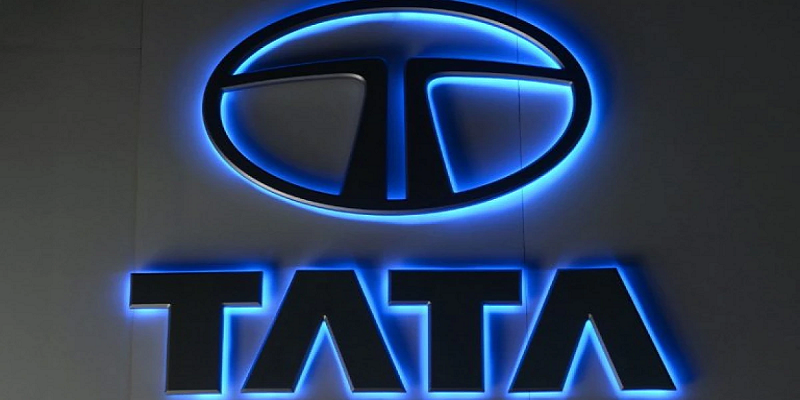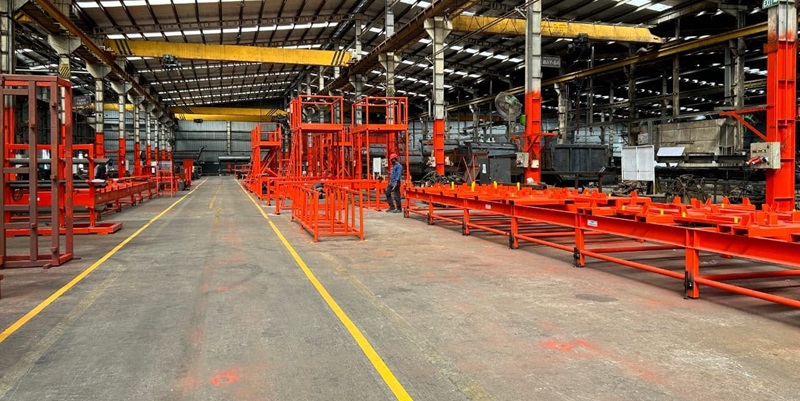Schedule a Call Back
Vivad Se Vishwas, 2024: Resolving tax disputes
 Articles
Articles- Aug 27,24

Vivad Se Vishwas, 2024 is a welcome measure
which provides opportunities to settle pending disputes thereby facilitating ease
of doing business. Pramod Achuthan, Partner and Shraddha Mandlecha, Senior
Consultant, Global Compliance and Reporting for Direct Tax, Ernst & Young
LLP will delve into the applicability, procedural aspects and manner of
settlement of disputes under the newly launched Vivad se Vishwas Scheme 2024
brought in by the Hon’ble Finance Minister vide Finance Budget 2024.
Considering the encouraging response
received from the taxpayers towards the Vivad se Vishwas Scheme 2020 and the
mounting pendency of litigation at various levels of appellate forums due to
pendency of appeals, VSVS 2024 has been launched for settling the disputed tax,
interest, penalty and prosecution pending as on 22 July 2024 under the
Income-tax laws after payment of certain normative amount determined under the
VSVS 2024. The date from which the taxpayers can begin to settle their disputes
as well as the sunset date, are yet to be notified by the Central Government.
Who is eligible to opt for VSVS 2024?
VSVS 2024 covers those cases wherein appeals, writ
petitions and special leave petitions are
pending as on 22 July 2024 whether filed by the tax payer or by the tax
authorities before any of:
-
Commissioner (Appeals) or Joint Commissioner
(Appeals);
-
Dispute Resolution Panel (DRP);
-
Income Tax Appellate Tribunal;
-
High Court; and
-
Supreme Court.
It covers assessments pending after the issue of
directions by DRP and pending applications for revision filed by taxpayer
before the Commissioner.
It also covers disputes relating to taxes determined under
the provisions relating to Tax Deducted at Source (TDS) and Tax Collected at
Source (TCS).
What amount is payable to settle disputes?
|
Nature of tax arrears |
Taxpayer settles before 31
December 2024* |
Taxpayer settles after 31
December 2024* |
|
Cases involving disputed tax,
interest and penalty |
||
|
Disputes eligible for settlement under 2020 Scheme, which remain pending at the same appellate forum as on 22 July 2024 |
110% of the disputed tax |
120% of the disputed tax |
|
All other eligible disputes |
100% of the disputed tax |
110% of the disputed tax |
|
Cases involving disputed
interest or penalty or fee |
||
|
Disputes eligible for settlement under 2020 Scheme, which remain pending at the same appellate forum as on 22 July 2024 |
30% of disputed penalty, interest or fee |
35% of disputed penalty, interest or fee |
|
• All other eligible disputes |
25% of the disputed penalty, interest or fee |
30% of the disputed penalty, interest or fee |
*In case appeal, writ petition or SLP is filed by the tax
authority on any issue which is to be settled then amount payable shall be 50%
of the amount in the above table.
*In case appeal or objections filed by the taxpayer are to
be settled and if the taxpayer has already got a decision on any issue in its
favour by the appellate authority or the High Court and the same has not been
reversed by any higher authority or court, the amount payable shall be reduced
to 50% of the amount in the above table.
How to calculate disputed amounts?
|
Nature of tax arrears |
Disputed tax (inclusive of surcharge and cess,
but excluding interest) |
|
Where appeal/writ/SLP is pending before any appellate forum as on 22 July 2024 |
Tax payable if such appeal/writ/SLP was to be decided against the taxpayer |
|
Where objections are pending before DRP as on 22 July
2024 |
Tax payable if DRP was to confirm variation proposed in the draft order |
|
Where DRP has issued directions but tax authority has
not completed the assessment on or before 22 July 2024 |
Tax payable as per the assessment order to be passed by
the tax authority in conformity with the directions of the DRP |
|
Where an application for revision filed by the taxpayer is pending as on 22 July 2024 |
Tax payable if such application was not to be accepted |
Where the settlement of the dispute results in reduction
of Minimum Alternate Tax (MAT)/Alternate Minimum Tax (AMT) credit, losses,
depreciation, the taxpayer can opt for either of the following:
-
Include tax related to reduction of MAT/AMT credit,
loss, depreciation in the disputed tax; or
-
Carry forward the reduced MAT/AMT credit, loss,
depreciation without payment of disputed tax
What is the procedure to opt for VSVS 2024?
Step 1: File a declaration to the designated authority
(‘DA’) on or before a notified date
Step 2: Within 15 days of receipt of the declaration, DA
to certify tax arrears and amount payable under VSVS 2024
Step 3: Pay the amount as per DA’s certificate within 15
days from the receipt of such certificate and intimate DA about the payment
Step 4: DA shall pass an order to conclude the dispute and
no matter covered by such order shall be re-opened in any other proceedings
under the income tax laws or any other laws.
Appellate Forum not to proceed to decide any issue
relating to order passed by DA.
In case where the taxpayer or tax authorities appeal is
pending before CIT(A)/ JCIT(A)/ ITAT then the appeals so pending are deemed to
be withdrawn from the date of issue of certificate from DA determining the
amount payable under VSVS 2024. However, the appeal will stand restored if the
declarant exits VSV due to breach of conditions (eg. Non-payment of tax payable
as per DA’s certificate).
In case where the appeal is pending before HC/ SC then the
taxpayer should withdraw such appeal with leave of the court and the proof of
withdrawal of the appeal is to be furnished to DA along with intimation of
payment.
Who is ineligible to opt for VSVS 2024?
1)
A person in respect of disputed tax, interest,
penalty, or fee relating to:
- Tax year
in respect of which an assessment or reassessment has been made on the basis of
search
- Tax year
in respect of which prosecution has been instituted
- Any
undisclosed income from a source located outside India or undisclosed asset
located outside India
- An
assessment/reassessment made basis information received pursuant to tax
information exchange agreements.
2) A person
in respect of whom prosecution has been instituted or he has been convicted
under the provisions of Unlawful Activities (Prevention) Act, 1967, the
Narcotic Drugs and Psychotropic Substances Act, 1985, the Prohibition of Benami
Property Transactions Act, 1988, the Prevention of Corruption Act, 1988, the
Prevention of Money-Laundering Act, 2002
3) A person
in respect of whom prosecution has been initiated by an income-tax authority
for any offence punishable under the provisions of the Bharatiya Nyaya Sanhita,
2023 or for the purpose of enforcement of any civil liability under any law for
the time being in force. A person who has been convicted of any offence
punishable under Bharatiya Nyaya Sanhita, 2023.
4) A person
in respect of whom a detention order is passed under The Conservation of
Foreign Exchange and Prevention of Smuggling Activities Act, 1974 and such
detention order is not revoked or set aside by a higher authority
5) A person
notified under section 3 of the Special Court (Trial of Offences Relating to
Transactions in Securities) Act, 1992
Concluding thoughts
This is a one-time opportunity for taxpayers to clean up
their balance sheets by opting for VSVS 2024 in terms of those cases which are
eligible to be disposed off. Disputes where merits are not strong (e.g. cases
where there is a Supreme Court decision against the Assessee) or where documentation
supporting the case of Assessee are not adequate should be evaluated for filing
under the scheme. Issues where there is multiplicity of litigation (eg TDS
issues with appeals by both the tax deductor and tax deductee) need careful
planning in deciding which appeals should be filed under VSVS 2024. In terms of
fact sensitive cases, considering the time limit to make the payment of taxes,
the taxpayers should proactively consult tax professionals in order to evaluate
the facts and take appropriate actions.
The Government’s initiative of introducing VSVS 2024 is in
the right direction to help taxpayers settle past litigations. In order to
further instil confidence among the taxpayers, it is expected that the CBDT
would shortly issue FAQs/clarifications to address the some of the debatable
aspects around VSVS 2024. To end, the
following quote seems appropriate “Learn the wisdom of compromise, for it is
better to bend a little than to break”.
__________________________________________________________________________
About the authors:
Pramod Achuthan, Partner (Global Compliance and
Reporting), Direct Tax at Ernst & Young LLP, India
Shraddha Mandlecha, Senior Consultant (Global Compliance and Reporting), Direct Tax at Ernst & Young LLP, India
Related Stories

JLR and Tata Communications to deliver smarter cars via platform
The use of Tata Communications MOVE™ platform will increase the data exchange and enable JLR engineers to harness deeper insights, monitor vehicle performance in real-time, and enable more prompt..
Read more
JCBL South manufactures 100th trailer
The 100th trailer was delivered to BEML Limited, a prestigious Miniratna PSU under the Ministry of Defence, Government of India.
Read more
Interarch wins Rs 2.21 billion orders in plant construction from Tata Projects
This is Interarch’ s second lithium-ion battery manufacturing order, after Exide Energy Solutions.
Read more










